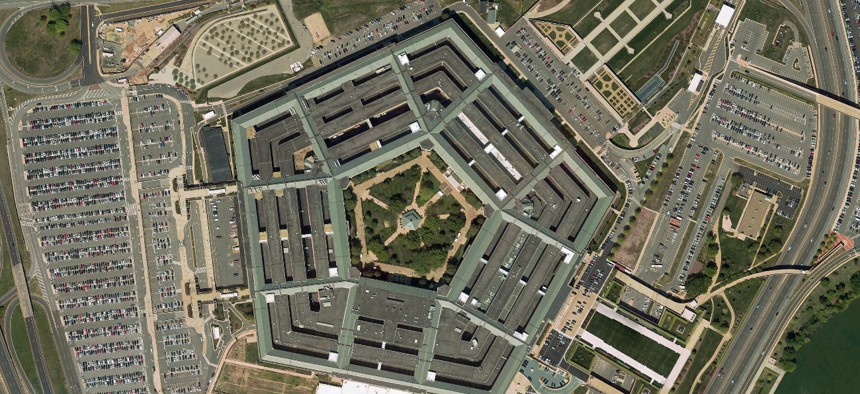Compromise Defense Policy Bill Includes Paid Parental Leave Fix, Allows Feds to Carry Over More Annual Leave
The latest version of the 2021 National Defense Authorization Act does not include House-passed measures blocking the Defense secretary from exempting Pentagon employees from collective bargaining.
Congress appears set to approve the annual must-pass defense policy bill next week, and the compromise reached between the House and Senate will codify a number of fixes to the federal law providing paid parental leave to federal workers, as well as allow feds to carry over more of their unused annual leave into 2021.
On Wednesday, members of the House and Senate Armed Services committees announced they had reached a deal on the 2021 National Defense Authorization Act. The text of the compromise bill was released Thursday night and includes a 3% across-the-board pay increase for members of the military.
The bill, which every year carries a number of governmentwide policies by virtue of its must-pass nature, also contains a number of tweaks to federal employee leave policy.
Lawmakers included language codifying technical fixes to the federal government’s paid parental leave program, which itself was passed as part of last year’s NDAA. That provision provided up to 12 weeks of paid leave in connection with the birth, adoption or foster placement of a child, but inadvertently left out a number of federal employees not covered by Title 5.
The provision in this year’s bill confirms that all employees of the Washington, D.C., court system, Federal Aviation Administration and Transportation Security Administration, as well as Title 38 medical professionals at the Veterans Affairs Department, are eligible for the benefit.
Additionally, the bill provides a partial waiver for 2021 of the annual cap on unused leave that can carry over from year to year, in light of the ongoing COVID-19 pandemic. If enacted, federal workers will be able to carry over an additional 25% of unused leave into 2021, although the extra leave will not be included in lump sum payments that federal employees receive when they leave federal service.
The Office of Personnel Management previously authorized a temporary waiver of the leave cap, but only for federal workers physically incapable of taking leave because they were deemed essential to federal agencies’ pandemic response efforts.
In a statement, National Treasury Employees Union National President Tony Reardon applauded the leave cap waiver’s inclusion in the bill.
“As the year winds down, federal employees have been afraid they will lose some of the annual leave they have rightfully earned, so the proposal in the defense policy bill allowing them to carry over more unused leave into 2021 is a welcome development,” Reardon said. “Federal employees, like everyone else, have cancelled vacations because of this pandemic and this proposal will help them save their earned time off for use later.”
Not included in the final NDAA was a provision passed by the House that sought to block the Defense secretary from using a newly granted authority to exempt Pentagon employees from federal labor law, a move that would effectively decertify all unions at the Defense Department. President Trump delegated his authority to exempt national security personnel from collective bargaining to the Defense secretary in a January memo, although then-Secretary Mark Esper declined to use his new authority.
Despite apparent bipartisan and bicameral congressional support for the authorization bill, President Trump has threatened to veto the bill because of a provision ordering the renaming of military bases named for leaders of the Confederacy and because it does not repeal Section 230 of the 1996 Telecommunications Act, which provides a liability shield for internet service providers against legal claims related to content posted by users. Lawmakers in both parties declined to include such a repeal, stating that it is not related to national security.




